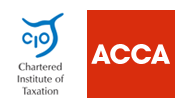Tax is a confusing topic for many of us and one which we don’t like to spend too much time thinking about.
But look no further- here are 5 steps for the self employed to become tax savvy! You could save yourself some money at the same time! This advice is for sole traders and partnerships.
1) Know when to file your tax return – If you use paper tax returns, you’ll need to file on October 31. But if you want some extra time, use HMRC’s digital submission, which is due on January 31. By 2023, paper returns will be obsolete anyway so best to get used to the digital system now. The tax year begins on April 6th and ends on April 5th.
2) Are you claiming everything you can? -Make sure you know tax savings relevant to your business. If you do a lot of driving, you can either make a flat rate mileage claim or claim on the business element of your fuel, insurance, service, road tax etc. This won’t apply to limited companies but just unincorporated businesses. You can also claim in lots of other areas, such as an accountancy fee, or any uniform or tools you use for work. These items must only be used for work purposes.
3) Save for your tax bill – When you are self-employed, you don’t pay your tax upfront. You will need to make sure you save money to pay for your tax bill. It’s a good idea to make an estimate of your yearly income and then save 20 per cent of it. Why not set up a savings account exclusively for your tax bill? Think of this account as untouchable as the money doesn’t actually belong to you but to the Government.
4) Make life easy when it comes to the tax deadline – Make a record of every single item you earn and spend. It’s best to use some accountancy software but, currently, you can also use simple spreadsheets or even try handwritten bookkeeping but just make sure you keep everything! Keep receipts and evidence too in case HMRC decides to take a look. This will change on April 1, 2024 when all sole traders and partnerships will have no choice but to complete their book keeping on some sort of digital software.
5) Pay into a pension – Pensions are a good way to help you save for the future and also save some tax along the way. If you’re a UK resident under 75, you can usually pay in the equivalent of your earnings up to a maximum of £40,000 a year. If you don’t have any earnings, you can still pay in up to £3,600 per year. It is always wise to take advice on this as there are many different pension products out there
And if you’re still finding things a little confusing, we, at Kew Accountants, can definitely help you along the way!




